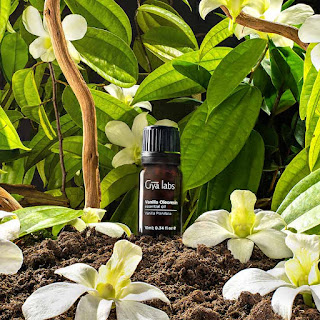Myrrh essential oil
Myrrh has been used as a perfume and incense for
medical and religious purposes since ancient times. Myrrh essential oil is a
popular choice in aromatherapy, and it's thought to help with coughs and colds,
as well as digestion and immunity.
Myrrh essential oil is
extracted from the gum of the Commiphora myrrha tree (a plant native to the
Arabian Peninsula and Africa), and it includes a number of substances that may
aid in health, including terpenoids (a class of chemicals having antioxidant
and anti-inflammatory properties).
Myrrh is a sap-like material (resin) that forms when
certain plants' bark is cut.
Myrrh is claimed to treat stomach and bowel
difficulties, congestion, parasite infections, and a variety of other ailments,
however there is no scientific proof to back up these claims.
Myrrh is used as a flavour agent in foods and
beverages.
In the cosmetics industry, myrrh is used as a scent,
incense, and as a fixative. It's also used to embalm bodies.
Also Read : Myrrh
Oil
Uses
Myrrh is reported to help treat or prevent the
following health conditions when used in aromatherapy:
· colds
· cough
· insomnia
· sore throat
Myrrh
essential oil is also reported to help with inflammation,
immune system stimulation, pain relief, and wound healing.
Myrrh essential oil is sometimes used in skincare
products and is said to help minimise the look of wrinkles.
For millennia, essential oils have been used in
traditional medicine and therapeutics.
Myrrh was used to treat hay fever and herpes in
Ancient Egypt. Myrrh was regularly brought into battle by the ancient Greeks as
an antiseptic for troops to wipe up battle wounds.
Related Post:: myrrh
essential oil
Myrrh is one of the three gifts that the three wise
men delivered to Jesus when he was born, according to the New Testament. Gold,
frankincense, and myrrh were among the presents.
Myrrh has a variety of other applications
Despite the fact that there is currently no scientific evidence, many individuals use myrrh to treat:
· cough
· asthma
· indigestion
· ulcers
· sore throat
· congestion
· hemorrhoids
· joint pain
· maintaining
healthy skin.
Related Post: cinnamon
bark essential oil
Health Advantages:
Myrrh essential oil has been shown to have antibacterial effects in studies. In a lab study published in Letters in Applied Microbiology in 2012, researchers discovered that a combination of myrrh essential oil and frankincense essential oil may help fight infection by acting as an antimicrobial—a substance that kills or inhibits the growth of microorganisms like bacteria and fungi.


Comments
Post a Comment